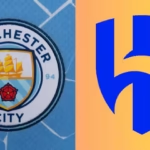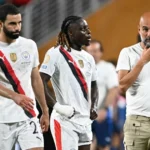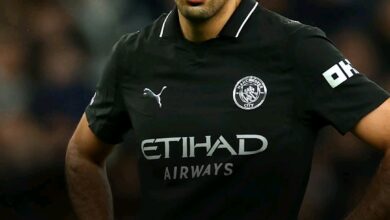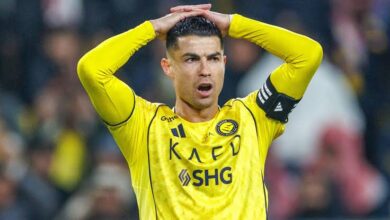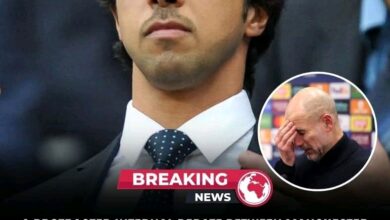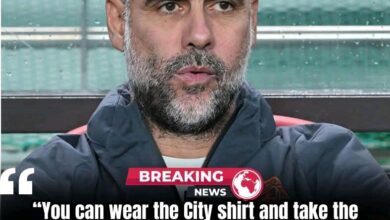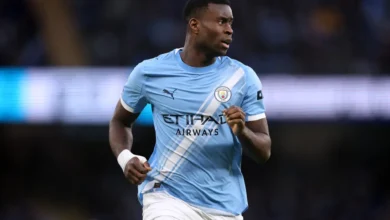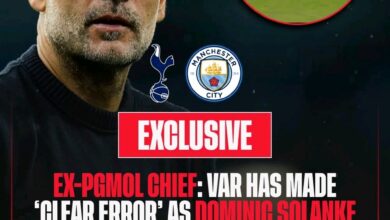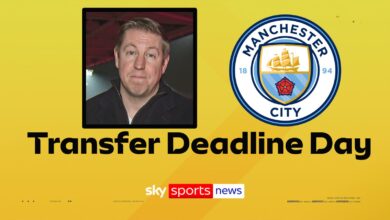Man City Predicted Lineup vs. Al Hilal: Club World Cup
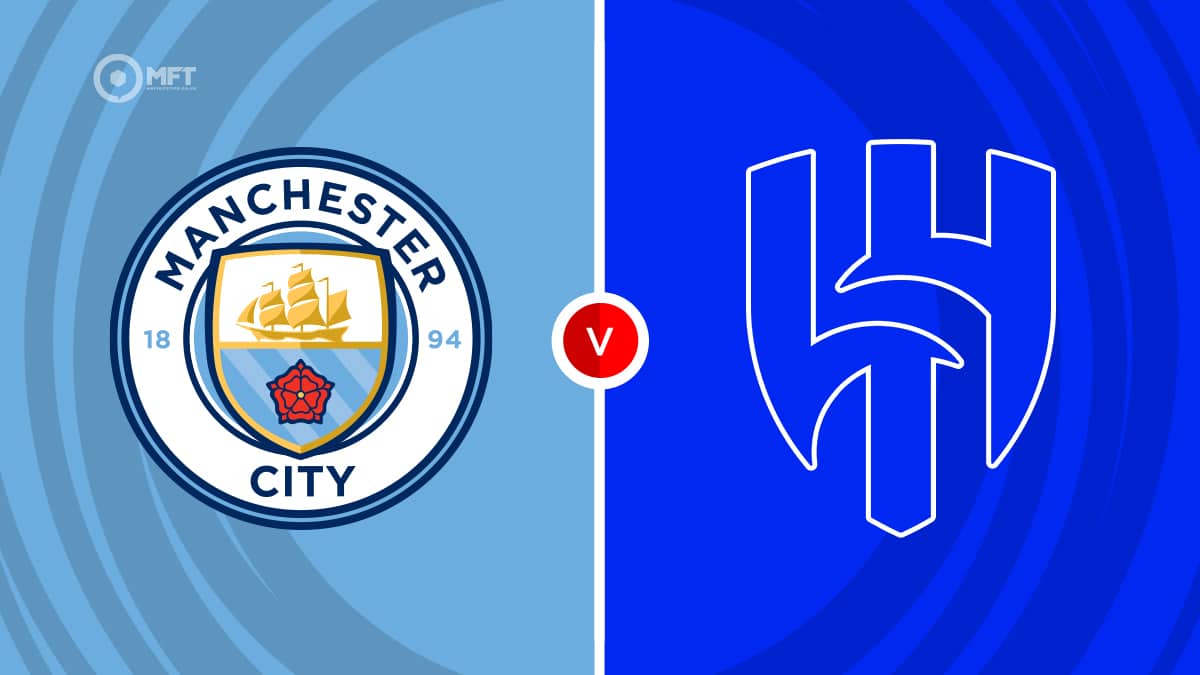
Manchester City’s journey to the Club World Cup knockout stages has been nothing short of remarkable, particularly given the turbulent period that preceded their arrival in the United States. After enduring one of the most challenging stretches in Pep Guardiola’s managerial tenure, the Cityzens have emerged from their group stage campaign with renewed vigor and tactical clarity that suggests they may be returning to their dominant best at precisely the right moment.
The transformation has been striking. Just months ago, Manchester City were grappling with inconsistent performances, defensive vulnerabilities, and questions about squad depth that threatened to derail their season. The loss of key players to injury and the natural evolution of an aging squad had created uncertainty around the Etihad Stadium. However, their perfect record in Group G of the Club World Cup—three wins from three games—has provided compelling evidence that Guardiola’s tactical adjustments and strategic reinforcements are beginning to bear fruit.
The most telling performance came in their final group stage encounter against Juventus, where City delivered a masterclass in attacking football that culminated in a commanding 5-2 victory. This wasn’t merely a case of superior individual quality prevailing; it was a demonstration of tactical cohesion, pressing intensity, and creative fluidity that has been the hallmark of Guardiola’s most successful teams. The performance served notice to their remaining competitors that Manchester City are not merely participants in this tournament—they are serious contenders for the title.
Tactical Evolution Under Pressure
Pep Guardiola’s ability to adapt and evolve his tactical approach has never been more evident than during this Club World Cup campaign. The Spanish manager has demonstrated remarkable flexibility in his team selection and formation choices, utilizing the tournament as both a competitive platform and a laboratory for tactical experimentation. This approach has yielded dividends, with new signings integrating seamlessly into the team’s established playing patterns while adding fresh dimensions to their attacking play.
The most significant tactical development has been the emergence of a more dynamic, fluid attacking structure that allows multiple players to interchange positions seamlessly. Against Juventus, this was particularly evident in the wide areas, where the combination play between full-backs and wingers created numerous overloads that the Italian defense struggled to contain. The movement and rotation of attacking players created space and confusion in equal measure, leading to the kind of devastating attacking display that has become synonymous with Guardiola’s philosophy.
Defensively, City have also shown marked improvement, with their pressing triggers becoming more coordinated and their defensive transitions more efficient. The integration of new personnel has not disrupted the team’s defensive structure; instead, it has provided additional options and variations that make them less predictable and harder to exploit. This tactical flexibility will be crucial as they progress deeper into the tournament, facing opponents who will undoubtedly study their group stage performances extensively.
The Al Hilal Challenge: Underestimating at Your Peril
Al Hilal represent a formidable obstacle in Manchester City’s path to the quarterfinals, and Guardiola will be acutely aware of the dangers posed by underestimating their Saudi Arabian opponents. The Riyadh-based club arrives at this tournament with significant pedigree in Asian football and a squad that blends experienced international players with hungry domestic talent. Their journey to the round of 16 has been built on solid defensive foundations and clinical finishing in key moments.
The Saudi champions have demonstrated throughout their group stage campaign that they possess the tactical discipline and technical quality necessary to compete with elite European opposition. Their defensive organization has been particularly impressive, with a well-drilled back line that maintains its shape under pressure and transitions quickly from defense to attack. This structural integrity could pose problems for a Manchester City side that relies heavily on intricate passing patterns and patient build-up play to break down organized defenses.
Moreover, Al Hilal’s counter-attacking threat cannot be dismissed lightly. They possess players with the pace and technical ability to exploit any defensive lapses, and their direct style of play could catch City off guard if Guardiola’s men become too comfortable in possession. The psychological aspect of facing lower-ranked opposition can often work in favor of the underdogs, as reduced pressure allows them to play with greater freedom while the favorites bear the weight of expectation.
Squad Depth and Rotation Strategy
One of Manchester City’s greatest advantages heading into this crucial knockout fixture is the depth and quality of their squad. Guardiola’s ability to rotate players without significantly weakening the team has been evident throughout the group stage, where no player started all three matches yet the team maintained its high performance levels consistently. This luxury of choice extends across all areas of the pitch and provides the manager with tactical flexibility that few other teams can match.
The integration of new signings has been particularly impressive, with players like Rayan Aït-Nouri making immediate impacts when given opportunities. His performance against Juventus was so convincing that many supporters were left questioning whether he deserved to retain his place in the starting lineup. This healthy competition for places throughout the squad ensures that every player must maintain peak performance levels, creating an environment where complacency is virtually impossible.
Guardiola’s rotation policy also serves a strategic purpose beyond simply managing player fitness. By giving different players opportunities to feature in various combinations, he is gathering valuable data about which partnerships and tactical variations work most effectively. This information becomes invaluable as the tournament progresses and opponents become stronger, requiring more specific tactical approaches and personnel selections.
Key Individual Battles and Matchups
Several individual battles will likely determine the outcome of this round of 16 encounter, with each presenting unique tactical challenges that both managers must address. The midfield battle will be particularly crucial, as Al Hilal will likely look to disrupt Manchester City’s rhythm by pressing aggressively in central areas and limiting the time and space available to City’s creative players.
Erling Haaland’s role in this fixture will be fascinating to observe. Despite his limited minutes in the group stage, the Norwegian striker has still managed to find the back of the net twice, demonstrating his lethal efficiency in front of goal. Against Al Hilal’s organized defense, his movement in the penalty area and ability to create space for teammates could be decisive factors. The challenge for Guardiola will be ensuring that Haaland receives adequate service while maintaining the team’s overall tactical balance.
The wide areas present another intriguing tactical battleground. Savinho’s emergence as a key attacking threat, combined with his developing understanding with Matheus Nunes at right-back, has given City an additional dimension to their attacking play. On the opposite flank, Jérémy Doku’s pace and directness have caused problems for every defense he has faced in the tournament. Al Hilal’s full-backs will need to be disciplined in their positioning while remaining alert to the constant threat of overlapping runs from City’s attacking players.
The Goalkeeper Debate: Ederson vs. Ortega
One of the most intriguing selection decisions facing Guardiola concerns his choice of goalkeeper for this crucial fixture. Ederson’s error against Juventus, which led directly to their early equalizer, has raised questions about whether the Brazilian should continue as first choice throughout the knockout stages. While Ederson quickly recovered from his mistake and the team’s dominant performance rendered it largely irrelevant, the psychological impact of such errors can linger.
Stefan Ortega has proven himself to be a reliable alternative whenever called upon, offering a different style of goalkeeping that emphasizes shot-stopping ability and command of his penalty area. His distribution, while perhaps not quite matching Ederson’s range and accuracy, is more than adequate for Guardiola’s tactical requirements. The decision between the two represents a fascinating insight into Guardiola’s tactical priorities and his assessment of the specific challenges posed by Al Hilal’s attacking approach.
The choice may ultimately come down to Guardiola’s preference for continuity versus his desire to make a statement about standards and accountability. Ederson’s experience in high-pressure situations and his familiarity with the defensive unit ahead of him may prove decisive factors, but Ortega’s fresh energy and determination to seize his opportunity could provide an unexpected boost to the team’s overall performance.
Defensive Stability and New Partnerships
Manchester City’s defensive structure has undergone significant changes during this tournament, with new partnerships being forged and tactical responsibilities being redistributed. The expected pairing of Rúben Dias and Josko Gvardiol at center-back represents a return to a combination that proved effective during the latter stages of the previous season, offering a blend of experience, athleticism, and technical ability that should be well-suited to neutralizing Al Hilal’s attacking threats.
Matheus Nunes’s conversion to right-back has been one of the most successful tactical innovations of the tournament. His natural midfield instincts have allowed him to contribute significantly to City’s attacking play while his pace and defensive awareness have made him solid in defensive situations. This positional switch demonstrates Guardiola’s ability to identify and maximize the potential of his players, creating solutions to tactical problems through innovative thinking rather than simply relying on traditional approaches.
The left-back position presents an interesting dilemma, with Aït-Nouri’s impressive debut performance putting pressure on more established options. His attacking contribution against Juventus was remarkable, but questions remain about his defensive consistency against more direct opposition. Guardiola’s decision will likely reflect his assessment of Al Hilal’s tactical approach and the specific threats they are likely to pose down City’s left flank.
Midfield Dynamics and Creative Responsibilities
The composition of Manchester City’s midfield for this fixture will be crucial in determining their ability to control the tempo and create scoring opportunities. Nico Gonzalez’s emergence as a reliable option at the base of midfield has provided Guardiola with the flexibility to manage Rodri’s minutes carefully, ensuring the Spanish international remains fresh for the tournament’s most demanding fixtures.
Ilkay Gündoğan’s role in the team has evolved significantly since his return to Manchester, with his positioning and responsibilities shifting to accommodate the team’s changing tactical needs. His experience and technical quality make him invaluable in breaking down organized defenses, while his ability to arrive late in the penalty area adds an additional goal threat that opponents must account for. Against Al Hilal, his composure in possession and range of passing could be crucial in unlocking a disciplined defensive structure.
Phil Foden’s positioning and influence on the game will be another key factor. The English midfielder’s ability to drift between lines and create overloads in dangerous areas has been somewhat limited during the group stage, but his quality and understanding of Guardiola’s tactical requirements suggest he will play an important role as the tournament progresses. His chemistry with other attacking players, particularly Haaland and the wide forwards, could prove decisive in creating the clear-cut chances needed to break down Al Hilal’s organized defense.
The Psychological Dimension
Beyond the tactical and technical aspects of this fixture, the psychological dimension cannot be overlooked. Manchester City arrive at this round of 16 encounter with confidence restored and momentum building, but they also carry the weight of expectation that comes with being overwhelming favorites. Managing this pressure while maintaining the intensity and focus required to overcome organized opposition represents a significant challenge for Guardiola and his players.
Al Hilal, conversely, have nothing to lose and everything to gain from this encounter. The freedom that comes with being underdogs can be liberating, allowing players to express themselves without the fear of consequences that might inhibit their natural game. This psychological dynamic has been responsible for numerous upsets in knockout football, and City cannot afford to underestimate the threat posed by opponents who are playing without pressure.
The tournament setting also adds unique psychological elements, with the neutral venue and different climate potentially affecting player performance and team dynamics. City’s experience in handling such situations should serve them well, but complacency remains a constant threat that must be actively managed throughout the 90 minutes.
Strategic Substitutions and Game Management
Guardiola’s approach to in-game management and strategic substitutions will likely prove crucial in navigating this knockout fixture successfully. His ability to read the flow of a match and make timely tactical adjustments has been a hallmark of his coaching career, and these skills will be tested against opponents who are likely to present different challenges throughout the match.
The depth of City’s squad provides numerous options for changing the tactical approach mid-game, whether through personnel changes or positional adjustments. Fresh legs in attacking positions could prove decisive in the latter stages of the match, particularly if the game remains tight and energy levels begin to drop. Similarly, defensive reinforcements might be necessary if Al Hilal succeed in creating sustained pressure through their counter-attacking approach.
The timing and nature of these substitutions will reflect Guardiola’s assessment of the match situation and his confidence in different players to deliver when required. The tournament format, with its emphasis on knockout football, places additional pressure on these decisions, as there are no second chances if mistakes are made.
Looking Beyond: Tournament Ambitions
While the immediate focus must remain on overcoming Al Hilal, Manchester City’s ambitions for this Club World Cup extend far beyond the round of 16. The tournament represents an opportunity to add another trophy to their impressive collection while demonstrating their status as one of world football’s elite clubs. The momentum generated by their group stage performances suggests they have the quality and tactical flexibility needed to compete with any opponent they might face.
The integration of new players and tactical systems during this tournament could also have significant implications for their domestic and European campaigns. The confidence and understanding developed through successful performances on this stage often translate into improved performances in other competitions, creating a virtuous cycle of success that can define entire seasons.
Guardiola’s tactical experimentation and squad rotation have also provided valuable insights into his plans for the remainder of the season. The partnerships and combinations that prove most effective during this tournament are likely to feature prominently in City’s approach to their remaining fixtures across all competitions.
Conclusion: A Defining Moment
Manchester City’s round of 16 encounter with Al Hilal represents more than just another fixture on their path to potential Club World Cup glory. It serves as a statement of intent, an opportunity to demonstrate that their recent resurgence is genuine and sustainable. The tactical improvements, individual performances, and collective confidence displayed during the group stage have established them as genuine contenders for the title.
However, knockout football has its own rules and rhythms, where tactical preparation must be balanced with mental fortitude and the ability to respond to unexpected challenges. Al Hilal will provide a stern test of City’s credentials, offering a different type of opposition than they faced during the group stage and requiring a mature, professional performance to overcome.
The match will also serve as a showcase for the new dynamics within Guardiola’s squad, demonstrating how successfully the integration of fresh talent has been managed and whether the tactical evolution evident in recent weeks can be sustained under increased pressure. Success in this fixture would not only secure progression to the quarterfinals but also validate the strategic decisions made during the summer transfer window and confirm that Manchester City remain capable of competing at the highest level across multiple competitions.
For Pep Guardiola, this fixture represents another opportunity to demonstrate his tactical mastery and ability to prepare his teams for the unique challenges presented by knockout football. His track record in such situations is exemplary, but each new challenge requires fresh solutions and innovative approaches. The tactical battle between his detailed preparation and Al Hilal’s determination to cause an upset promises to provide compelling viewing for neutral observers and crucial insights into both teams’ championship credentials.
As Manchester City prepare to take the field in Orlando, they carry with them the hopes of their supporters worldwide and the weight of their own ambitious expectations. The transformation from their earlier season struggles to their current position of strength has been remarkable, but the true test of their revival will come in these knockout stages where margins for error are minimal and the stakes continue to rise with each passing fixture.
